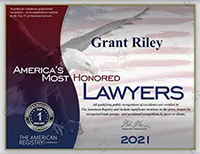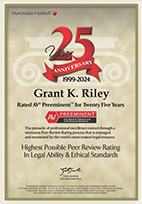Recovering damages in your carbon monoxide lawsuit involves understanding the extent of the harm and the negligence involved. If you suffered carbon monoxide poisoning due to someone’s negligence, you may have the right to seek compensation for your injuries. The losses incurred by being exposed to carbon monoxide poisoning can be immeasurably difficult to live with and require legal action to attain the financial recourse necessary to attempt to compensate for them.
Individual losses may vary greatly; some of the greatest among them may be the loss of a loved one, permanent disability, loss of income, ability to work, and ability to conduct basic motor functions and engage in everyday physical activities.
If you succeed in your case, you may receive:
- Lost wages
- Pain and suffering
- Medical costs to treat the injury
- Emotional distress
- Impairment
- Loss of enjoyment of life
Every loss one potentially can experience from carbon monoxide poisoning is also a basis for recovery in the legal context, as long as you have the right attorney by your side.
WRONGFUL DEATH CLAIMS AFTER FATAL CARBON MONOXIDE POISONING
Most states allow families to file a lawsuit when their loved one passes away due to negligence. Many carbon monoxide cases are filed as wrongful death lawsuits.
Claims resulting from a fatal carbon monoxide poisoning incident aim to compensate surviving family members for the tragic losses they suffered. If your lawyer can prove that your loved one died because of someone else’s negligence, you can receive:
- The lost earning capacity from the deceased
- The loss of emotional support that the deceased would have provided
- The mental pain and anguish suffered by the family
- The lost love, care, and companionship
If the injury and death were preventable and were the proximate result of the negligence of the defendant, family members and dependents of the victim may be able to receive compensation for their loss through a wrongful death lawsuit.
Benefits available for wrongful death can vary by state, but most statutes allow primary beneficiaries to claim financial damages following the preventable death of a spouse, child, or parent.
Generally, a carbon monoxide poisoning claim for wrongful death may include compensation for the financial consequences of the death, such as lost earnings or lost financial support. Claims can also seek financial recovery for non-economic damages, such as mental anguish, lasting emotional pain and suffering, loss of society, companionship, protection, comfort, advice, counsel, training, education, or guidance, and other support that the victim provided to family before his or her death. Spouses can also add a loss of consortium claim to a wrongful death case.
If there is no surviving spouse, parent, or child, wrongful death claims may be available in some states for certain secondary beneficiaries who were financially dependent on the family member who died. Discuss whether you might have a viable claim with an experienced California carbon monoxide attorney at Riley | Ersoff LLP
HOLDING PROPERTY OWNERS LIABLE FOR CARBON MONOXIDE POISONING
When tragedy strikes, Riley | Ersoff LLP goes into action. Our team of lawyers acts quickly to initiate legal action, identify the cause of the accident, and document the liability of all responsible parties. In a carbon monoxide poisoning case in a rental property or hotel, these can include the building owner, landlord, property manager, gas-fueled furnace or appliance manufacturer, or a company that installed or serviced the equipment.
These parties all have a legal obligation to prevent carbon monoxide poisoning. But when they fail in this duty, people can die or suffer permanent disabling injuries. If you or a family member has suffered harm from a building owner’s negligence, we will fight for you.
Some examples of negligence that could lead to a carbon monoxide leak include:
- Not installing a carbon monoxide detector in the unit as is required by local law
- Failure to properly maintain the appliance that had the carbon monoxide leak. Generally, a landlord is legally obligated to provide tenants with a habitable premise. Their failure to do so can be both negligence and a lease violation.
- Not following local health and safety codes
WHEN SOMEONE VIOLATES CARBON MONOXIDE DETECTOR LAWS
Many states and cities require landlords and owners to install carbon monoxide detectors in rentals. These laws often also require landlords to maintain the detectors in working order and to replace them when necessary. Some statutes explicitly state that violators are liable for a victim’s injuries without needing the injured person to prove carelessness or negligence.
WHEN SOMEONE VIOLATES HEALTH AND SAFETY CODES
City and state health and safety codes exist for a reason. There are many health and safety codes to follow that pertain to carbon monoxide and preventing poisoning incidents. Such codes include rules about certain types of ventilation for gases like carbon monoxide or the regular maintenance of fireplaces or other carbon monoxide gas-producing appliances. Codes often call for the regular maintenance of carbon monoxide detectors.
Failure to abide by these codes can lead to liability for a homeowner or landlord should this negligence lead to a renter or house guest becoming ill with carbon monoxide poisoning. In some areas, negligence per se can become a factor in a claim when property owners fail to follow these health and safety codes relevant to carbon monoxide poisoning.
WHEN THE LANDLORD FAILS TO UPHOLD A PROMISE
This simply refers to the landlord failing to uphold a promise to check and make sure a carbon monoxide monitor was functioning correctly or that certain means of ventilation in the property were up-to-date. In general, the landlord is legally obligated to provide the tenant with a habitable premise. Their failure to do so can be both negligence and a lease violation.
NEGLIGENT MAINTENANCE
Almost every state recognizes the implied warranty of habitability, which courts and judges incorporate into residential lease law and laws relating to the transfer of real property or houses. This warranty requires that landlords provide tenants with rentals that meet basic health and safety standards. As such, landlords must ensure that they address and remove all potential hazards relating to carbon monoxide poisoning so that a renter can be free from that risk.
WHEN A HOTEL FAILS TO ENSURE THE SAFETY OF GUESTS
Hotels must to prioritize the safety of their guests. However, they sometimes fail to maintain furnaces and water heaters properly. The result can be carbon monoxide poisoning, causing brain injury, death, and needless heartache for unsuspecting victims and their families. Such harm should not happen if hotel owners and hotel management companies properly maintain their equipment.
In sum, should a person suffer injuries from carbon monoxide poisoning, a facility’s owner, landlord, manufacturer, or other professional could face liability for the leak causing overexposure if he or she failed to protect guests, renters, and others. A carbon monoxide poisoning lawyer can help you identify a responsible party or parties and pursue legal remedies in your best interest.
HOW RILEY| ERSOFF LLP CAN HELP YOU WIN
The most common type of carbon monoxide poisoning lawsuit will involve a premises liability claim. To win this case, your lawyer will need to prove:
- The defendant owed you a duty of care
- The defendant breached the duty by acting unreasonably under the circumstance
- You suffered an injury
- You would not have suffered injuries had it not been for the acts or omissions of the defendant
If you have suffered harm due to carbon monoxide poisoning, Riley | Ersoff LLP will go to work for you. You and your family deserve nothing less. Our team of skilled carbon monoxide attorneys will:
- Investigate the incident and how it happened. They may inspect any maintenance logs to see if the property owner maintained the gas-burning equipment properly.
- Cast a wide net to identify all defendants. You will not want to leave anyone out. Your attorney can help ensure that you can collect what you’re owed from the right parties.
- Show liability and refute potential defenses. A property owner may try to exploit gray areas. Most of all, they may try to argue that the poisoning victim was responsible for their injury
You need a lawyer to help tell your side of the story and hold the defendant accountable for their actions. The important part is figuring out who was responsible for your or your loved one’s injury. Your attorney can figure out the right person to sue in your case. Riley | Ersoff LLP has substantial experience litigating in this area. We have a proven track record of success in achieving millions of dollars in damages for our clients. Our carbon monoxide attorneys will work diligently to build a strong and successful case for you.
Contact Us
Contact us today for a free consultation.
The post RECOVERING DAMAGES IN YOUR CARBON MONOXIDE LAWSUIT appeared first on Riley | Ersoff LLP.

















